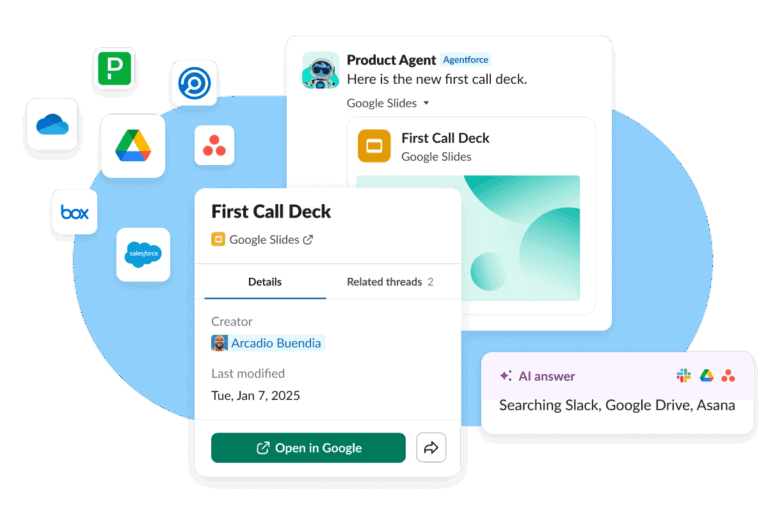Slack has announced that the platform will get a new real-time search API and Model Context Protocol (MCP) server that third parties can integrate with. This will make it possible to use valuable conversation data for AI. A huge amount of knowledge, information, and context is hidden in Slack conversations. This can now be used by AI.
Slack has been critically examined by many organizations and developers in recent years. It was the preferred platform for many developers, but was then acquired by Salesforce. After that, the focus was heavily on integrating Slack into the Salesforce ecosystem.
To date, this has only been partially successful, but with the rapid rise of AI and the speed at which organizations need to adapt, Salesforce now seems to have found the right route and strategy for Slack. The focus is no longer on full integration with Salesforce solutions. Salesforce sees Slack as the gateway to all kinds of AI applications and agents.
Real-time search API and MCP server
The introduction of the real-time search API and the MCP server allows developers to read data from Slack conversations. For example, a project channel discussing what an app should look like and what functionality it should include can be very valuable. This is especially true if employees have discussed how this should be approached, what is compliant and what is not. The knowledge and experience hidden in Slack messages is extremely valuable. The context of information can also sometimes be extremely helpful in putting something into perspective.
With the real-time search API, you can search the conversation history within Slack and use the data for other applications. With MCP, an AI agent can talk to the Slack databases to obtain the information.
Tip: Slack AI makes employees smarter and more productive
Slack as an open platform
In addition to offering advanced integration capabilities to extract conversations from Slack, we see that Slack is trying to be the open platform for everyone. By open, we mean that anyone can build applications and run them on top of the Slack platform.
According to Slack, more and more AI companies are making great use of this. Anthropic, Google, Perplexity, Dropbox, Notion, Cognition Labs, Vercel, Cursor, and others are all using it. For example, users can get started with Claude within Slack to create conversation summaries.
Slack aims to become the new UI for AI, with employees spending most or all of their day in Slack. This means they no longer need to log in to submit a ticket or leave request. Alternatively, if they hold a management role, they can easily approve or reject items without needing to log in each time. AI can be a huge help in this regard.
User-friendly, accessible, and improved productivity
Building applications on top of the Slack platform has been made incredibly easy. You don’t have to be a seasoned developer to build an app. Even vibe coding is embraced by Slack and Salesforce. Using apps on the Slack platform is easy; it all fits within the existing processes and UI. It also improves productivity, because you can approve or complete tasks and actions without leaving Slack.
Many organizations have already developed apps to take Slack to the next level. Anthropic has made Claude available within Slack, enabling employees to utilize Claude in conjunction with conversation history, web search, and data connections. Google Agentspace also offers a platform for agents, who can now integrate directly with Slack via the Slack RTS API connection. Dropbox Dash also effectively utilizes the RTS API.
Slack back at the center of the organization
What this announcement makes clear, in any case, is that Slack will once again take center stage in organizations. Anyone who thought Slack would slowly disappear under the wing of Salesforce can breathe easy. However, most companies will have to be patient for a while longer, as the RTS API and the Slack MCP server are currently only available in a closed beta. These features will not be available to everyone until early 2026.
